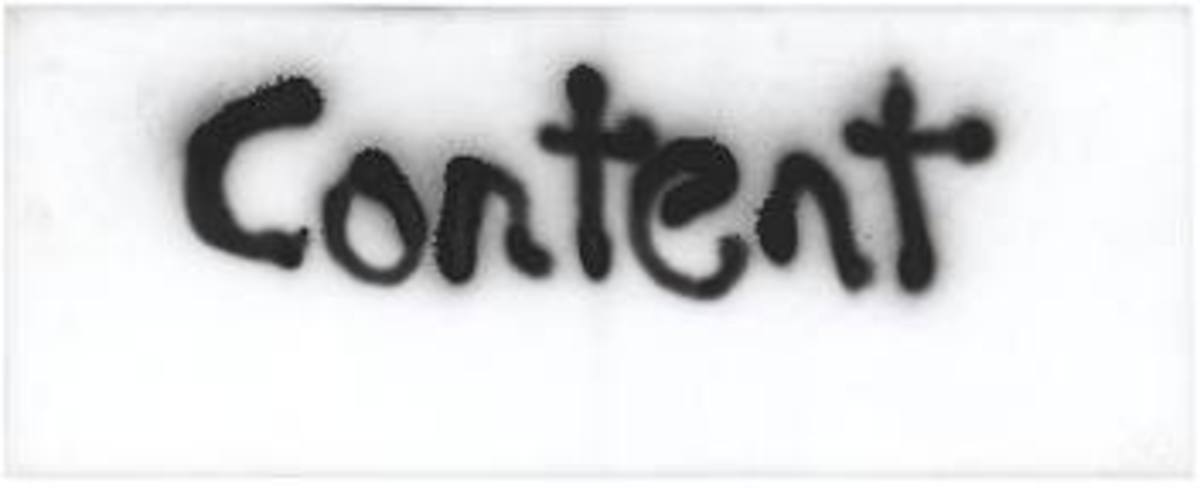- HubPages»
- Books, Literature, and Writing»
- Commercial & Creative Writing»
- Making Money as a Writer
How Online Writing Scams Operate - Part 2
Bit of a Recap
In the first article I touched on a number of points. Some need no elaboration, some do.
Being duped into writing articles on line for which you will not be paid is fairly usual.
The site makes money from the ads around your article, and also, in many cases, from stealing your articles and publishing them on sites in other countries, in other languages.
As there are 'thresholds' meaning you will NOT be paid until you 'earn' a particular amount, (and all such bookkeeping is done by the people who are robbing you), it is rather evident that the word 'trust' can not be used in any context in regards to online writing.
Simply put, you have absolutely no idea how many people see your article, how much money is earned per view of your article.
You have to rely on the 'honesty' of the site owners, who are, if you didn't figure it out already, not very honest.

Marching Shills
Most writing scams have an 'army' of persons who claim they 'were always paid!' Many will state that you were not paid because you 'broke the rules'.
That you have no way of checking if they really were 'always paid', you accept it. You don't ask yourself, how would an average user know if you broke the rules?
Years ago, a particular site (I'll call it Factsy) had seven paid Shills. These persons formed the site with the owner. Their job was to run from social network to social network and every other writing site touting Factsy, to bring in warm bodies.
These Shills were all over the 'Net. Every single publishing site would see them pop on and leave cut and paste comments on dozens of articles.
The comments were something like...
”Join Factsy and make ten times what you make here! Use my reference Number!”
Considering how busy the 7 Shills were, thousands of people flocked to Factsy. They joined, they posted, they were active.

The 7 Shills
Factsy went well for nearly a year then, suddenly, a number of writers weren't paid.
The 7 Shills of Factsy had a new job, that is to attack and discredit anyone who claimed they were not paid by Factsy. The Shills would gang up on the complainer, discredit him/her, and rope in more suckers.
To criticize the site would garner foul attacks from the Shills and their dozens of Duals so that it simply was not useful to try to warn others that Factsy was a scam.
Factsy used every trick, from playing with the number of views to marking items as 'low value' so they would earn less. This regime went on until Factsy abruptly disappeared, leaving the 7 Shills unpaid, and looking very stupid.

The Power of Shill
When Factsy went down, one of the 7 Shills spilled his guts. He posted what he had done, how he and the others had done it. He mentioned that he had a number of Duals so that it seemed that Seven people were attacking the complainer, not one person using 7 different names.
He made public posts on a particular site, and one of the things he wrote which became the talking point, was how the Shills were 'out shilled' by the owner as the site went down without paying them.
This revelation may have been shocking in that day. Today, an Owner doesn't have to pay a Shill. The loudest defenders of Scam sites are common users who, having been paid a few times turn into its most vocal supporters.
The willingness of average users to defend a site they know nothing about replaced the paid Shill.
No longer did an owner need to take a number of people on board and pay them a virtual salary to run around the Internet touting the site and attacking detractors. This job was undertaken by the simple minded who did the work for free.

Scam Blue Print
Subsequent scam sites created their own blue print. The Standard was;
1. Get a free web site, fill it with a pile of plagiarized and self created items.
2. Get an Ad sense and Amazon account in the Owner's name.
3. Run all over the 'Net, from Twitter to Facebook to every possible writing site, and tout the new site.
4. Create a 'Threshold' so that earnings can be controlled.
5. Pay every user who reaches the Threshold that First Time.
With a new site, the first payments would need outside money. The site would not bring in enough to pay what was stipulated.
That is why plagiarizing is necessary. Post 100 good articles taken from various venues, change the names, do a bit of alteration, post them, and gather the coin while Newbies work to reach that first threshold.
The fact is that a person who visits a site and looks at a page only produces a fraction of a cent. Whether the view is just that, whether it is followed by a like or a comment, it is still considered one view.
Clicking on an ad brings in a subsequent sum to the site, and if the item in the ad is purchased, then another sum.
But in most cases, the visitor simply reads.
Hence to pay a writer $25 would require about 18k views. How many people get 18k views a month? Especially on a new site?
That's why being able to pocket the coin earned from plagiarized items is so crucial.
Newbies, if allowed to see how slowly their money accumulates would walk away. So there has got to be outside money ready to pay particular Newbies in full on time.
That first pay out must be made to 'prove' the site is legitimate. Even if it means the Owner has to mortgage his house.
The second pay out is not mandatory. Many persons, paid once, believe the site is legit and post and post and put in for the second payment, and keep posting. They may put in for their third or fourth before realising they haven't gotten their second. The items they post will repay the Owner.
Meanwhile, hundreds, thousands are joining. They join, they get paid the first time, keep writing.
Eventually, when they aren't paid and complain, others who were paid attack. Just as Jay Gould said; he can 'pay half the working class to kill the other half.'
The Owner of a writing site pays half the users to attack the unpaid half.

The Scam Continues
The decision of who gets the second and subsequent payouts is not based on the quality of writing. It is a matter of where one lives plus how many warm bodies were brought in with the addition of defending the site on other sites.
Hence, the poster in New York City, the one in Iceland who brought in twenty new users, the one in Hungary who attacked every one who criticized the site will be paid.
To prevent someone noticing this, a few random users who don't fit the categories will be randomly paid that 2nd time so as to be the exception to break the rules.
Eventually the site will have a large number of users. This raises the price advertisers pay. This is coupled with those writers whose work is gaining revenue but are not being paid.
This Scam has been going on for nearly two decades.
Prove It
A writer in Jamaica can be ripped off as easy as those in Africa or Asia. Being in the Third World makes if very unlikely you'll be paid after that first time, unless the site is doing fantastically well.
To protect yourself use the name of an American man, connect via an I.P. which makes it seem you are in New York City.
Never respond to attacks on your articles no matter how ridiculous. The attacks are often launched by the owner's dual (an account he operates in a different name). The attack is done to pull your tongue so that you respond and the Owner can kick you off the site and steal the money you earned.
If you read the fine print of your user's agreement you will see that it is specified that attacks on other users result in you being kicked off and your money confiscated.
Mylot has a very clear agreement. The Owner decides if you attacked another user, (this is done just before pay out) and kicks you off the site, unpaid. In this way, the owner pockets your earnings. And you, who agreed to this, have no recourse.
By using an American I.P. by pretending to be an America, you prolong your 'shelf life'. Of course, being a scam it will be going down.








